In the border zone of North Macedonia, Greece’s neighbor, the Macedonian police offer the migrants they intercept the option of a "voluntary return." Yet accounts from on the ground show that the practice – legal and defined on paper – exists in a gray area which sometimes turns into disguised deportations.
A ginger cat jumps onto the hood of a car owned by the Macedonian border police parked on the main path. The feline yawns, stretches and sits down to contemplate its surroundings. An officer inside the vehicle distractedly watches the movements of a group of young people who have just arrived at the Vinojug Temporary Transit Center. A few meters away, a colleague also observes the group out of the corner of his eye, though he seems more interested in his phone.
Grouped together near the door of the space containing their bunk beds, the young people who have just arrived from Greece ask dozens of questions to whoever will listen: "Where is Skopje [the Macedonian capital] ?" "What will happen if we decide to go there?" "Is there an open camp there?" "How much time will it take for the transfer?" "If the police decide to send us back to Greece, where will they take us?"
After arriving at the closed center in the small border town of Gevgelija in the south of North Macedonia the previous evening, the youth face much uncertainty. They have been intercepted by the border police, and placed in the center. They now face two choices. They could either request asylum to stay in Northern Macedonia and later be transferred to a center for asylum seekers in Skopje, the capital. Or they could agree to a "voluntary return" to Greece.
Read AlsoNorth Macedonia: A stopover for vulnerable migrants on their way to western Europe (1/3)
"If we go back to Greece and the police arrest us, we’ll go to prison for two years…And then there are mafia groups at the border area who could kidnap us, so we’re scared," says one of the youths in the group. To Raheem, aged 19, from Cairo, Egypt, going back and relying on smugglers again for a safe crossing doesn't seem like the best option to him.
"We just want to be safe and secure. If our peace of mind means going back to Greece, so be it. If our peace of mind means going to the capital, Skopje, so be it," he says, hesitating.
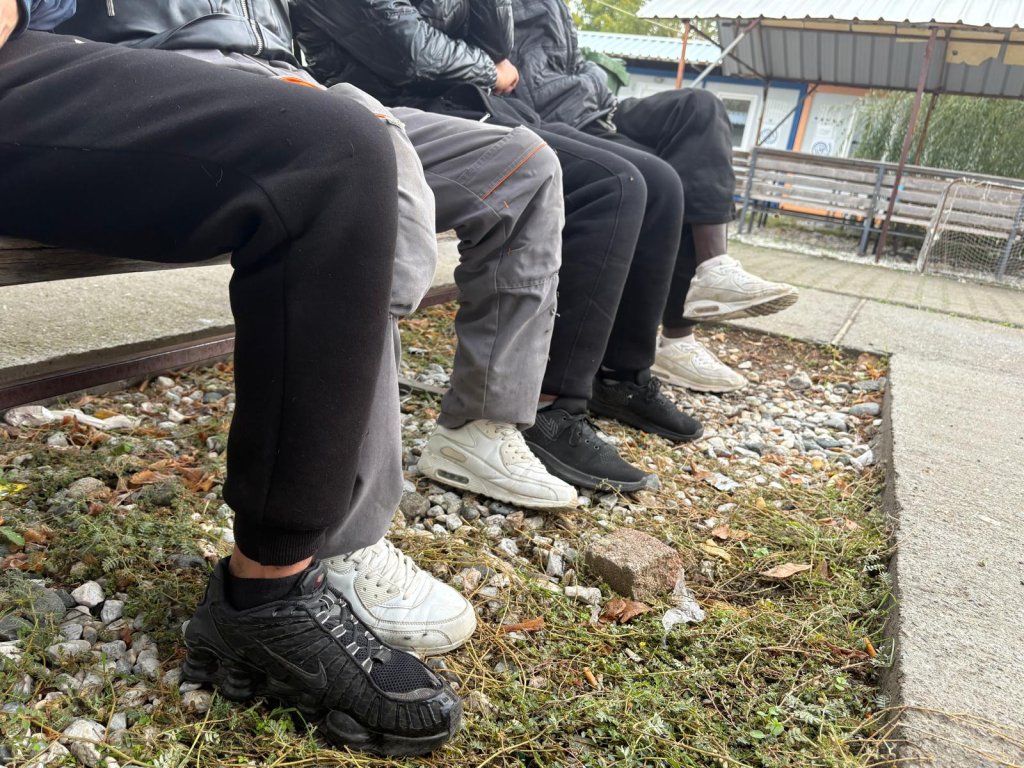
InfoMigrants learns the next day that the police had returned Raheem and everyone else in the group to Greece. Was it truly an informed and deliberate choice? Did each of the youths really give their consent to return? And above all, what exactly is a "voluntary return"?
Voluntary returns are done 'orally, without any documents to sign'
In theory, the International Organization for Migration (IOM) defines Assisted Voluntary Return and Reintegration (AVRR) as an option for migrants to return to their countries of origin, or transit, or to a third country, "based on informed and voluntary consent." Yet in practice, there is a gray area in North Macedonia. The decision is made orally, carried out in a context where information is often lacking, and it often appears to be more of an illegal pushback.
Contacted by InfoMigrants, the Ministry of Internal Affairs of North Macedonia provided its own definition of the procedure: "If they aren’t asylum seekers, if they do not wish to apply for the IOM’s AVRR program, and if they do not wish to remain at the Gevgelija transit center to receive assistance, they are free to leave, and we know they are returning to Greece."
In the early years following the 2015 migration peak and the establishment of the Vinojug transit center in Gevgelija, "the police didn’t give people the choice and pushed back groups," says Jasmin Redjepi, the president of the non-governmental organization (NGO) Legis. As recently as 2022, the Border Violence Monitoring network published documented cases of pushbacks, complete with videos and locations. In 2025, "the practice has changed; it is now a matter of personal choice," says Redjepi. Yet everything is done orally: "There is no written document to sign or anything. Greece does not prevent them from entering North Macedonia, North Macedonia sends them back to Greece: it is a kind of informal situation between the two countries. It is the same thing in the north, between Serbia and North Macedonia."
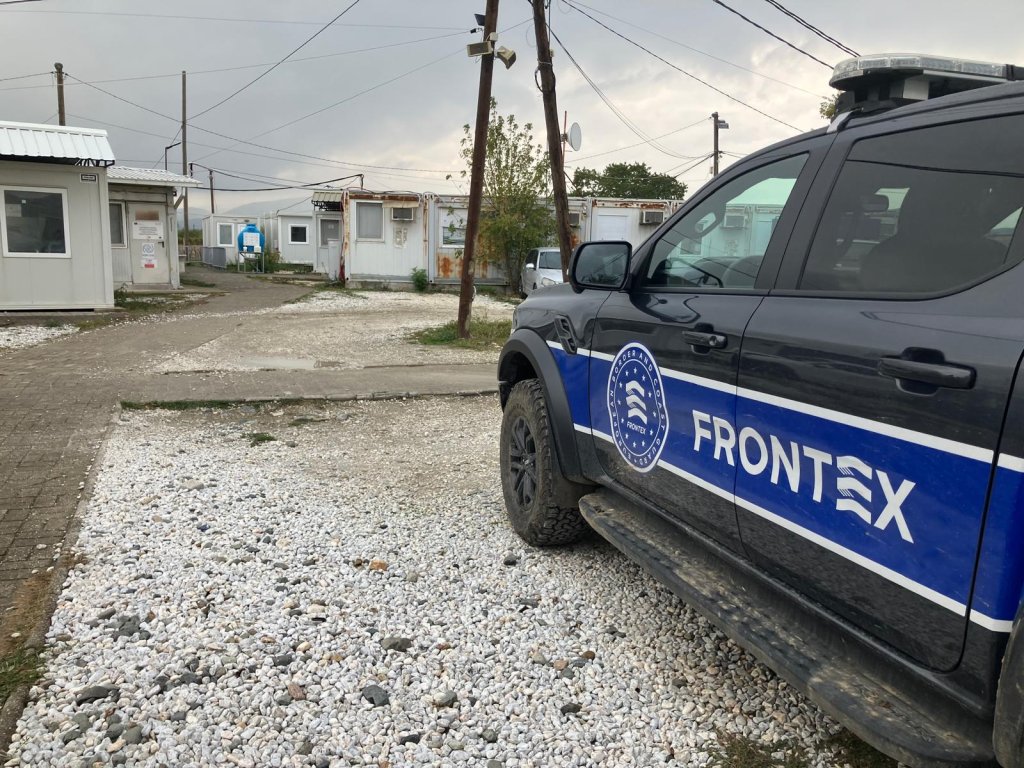
The deployment of the European Border and Coast Guard Agency Frontex in the southern border area in April 2023 has brought about positive changes, explains Redjepi. "Now, when someone wants to stay here and apply for asylum, their first interview is with Frontex, who then tells the Macedonian police to leave them at the center. Before, it was just the Macedonian police; and much more arbitrary."
The lawyers of the Macedonian Young Lawyers Association (MYLA) share the same analysis. "These transit centers remain in a legal limbo: they were opened in a context of 'crisis management' that has been in place since 2015. So the migrants inside also have an undefined legal status" – and benefit from very little protection. "They are no man's lands, under no jurisdiction," says Mitko Kiprovski, a lawyer and advocacy officer for the NGO Jesuit Refugee Service. "So no one can issue documents to sign or stamp."
A simple message from a smuggler makes 'the youth flee Vinojug at night'
The migrants who arrive at the closed center in Vinojug, on the border, overwhelmingly pick the "Voluntary Return" option.
Migrants prefer to return to Greece rather than be transferred to the capital and its open center for asylum seekers mainly because of the pressure exerted by smugglers. Human traffickers try to ensure that the migrants don't pause along their journey, so they can more quickly collect the money released at each successful stage. Yet being transferred from Vinojug to the capital, Skopje, takes time: it’s often a 30-day wait. It is therefore better for business if the migrants go back a few hundred meters, try again, cross without incident, and reach the Serbian border more quickly. "There are even smugglers who have strategies: they send a first group knowing it will be intercepted, to create a diversion and send a second group behind them," says Redjepi of the NGO Legis.
The Ministry of Internal Affairs observes the same phenomenon, explaining to InfoMigrants: "Those intercepted by the Macedonian police are immediately ordered by the smugglers to return to Greece, to go back to the assembly point, the Hara Hotel, located about 1.5 kilometers away, where a new group is formed and where they again attempt to be smuggled in. Payment for the smuggling service is only made by the person once they have arrived from point A to point B, which means they have an unlimited number of attempts to be brought illegally into our country. This is why people return to Greece voluntarily."
Many migrants accept being sent back. Some even "escape" from Vinojug before the police can arrange their return trip by van. Comings and goings are controlled in the closed transit center. "Yet at night, it's not controlled. Young people often flee Vinojug at night, climbing over the fences," says Jasmina, another member of Legis, which operates within the transit center. The energetic woman with red hair and a gentle smile seems to know all of the center's secrets, after working there for several year. "They leave as soon as they receive a message from the smuggler. He tells them to go to a specific location, just on the other side."
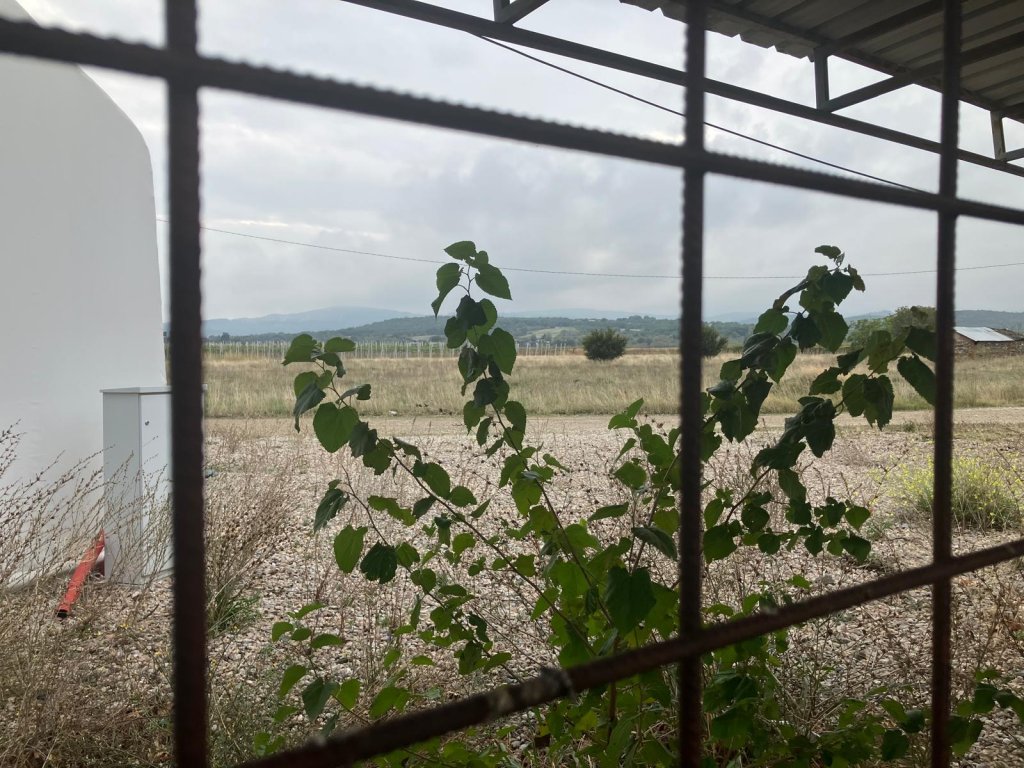
On the other side of the fences lies the "green line": the border zone, covered with a few fields and tall grass. A forest and mountainous landscape is visible from the other side. The village of Idomeni, in Greece, is very close. A team from InfoMigrants interviewed a Greek police woman there in early October, who confirmed : "Sometimes it's the same people who cross back, those who have already been pushed back by North Macedonia."
"We encounter these young people four or five times in a row here in the transit center," Jasmina said. When asked for her opinion on this cyclical pattern, the employee simply shrugged her shoulders and sighed.
'I didn’t want to go to Greece the first three times!'
Some migrants nevertheless resist the pressure from smugglers. Their return is not, by any means, "voluntary," they say. In the case of 16-year-old Mohammad Azim, he avoided the "incessant" calls from the smuggler he paid. "He would tell me: ‘What are you doing here? Come back to Greece, I’ll make sure you cross the border again into Serbia.'" Azim was tired of this. "The smugglers do nothing, we never see them… We pay them, but I don’t even know why we pay them anymore: we’re the ones taking all the risks."
This young man claimed that he told the authorities, from his very first interception, that he wanted to stay in North Macedonia. The border police only allowed him to settle in Vinojug after the fourth attempt. Each time, "Macedonian police would stop me at the border crossing, send me to the Gevgelija center... Then they would take me and another group of migrants who were already in the center back to Greece," he said. He was therefore deported.
When questioned about these practices, the Crisis Management Center (the regional public body in charge of the Vinojug center) referred InfoMigrants to the Ministry of Internal Affairs, "because they are responsible for the voluntary return procedure." Frontex also directed InfoMigrants to the Ministry of Internal Affairs, explaining that, "Frontex has not received any information concerning the return of asylum seekers to Greece." Contacted by InfoMigrants, the Ministry of Internal Affairs confirmed: "We have received no reports of this kind, neither from local authorities, nor from Frontex, nor from the NGOs."
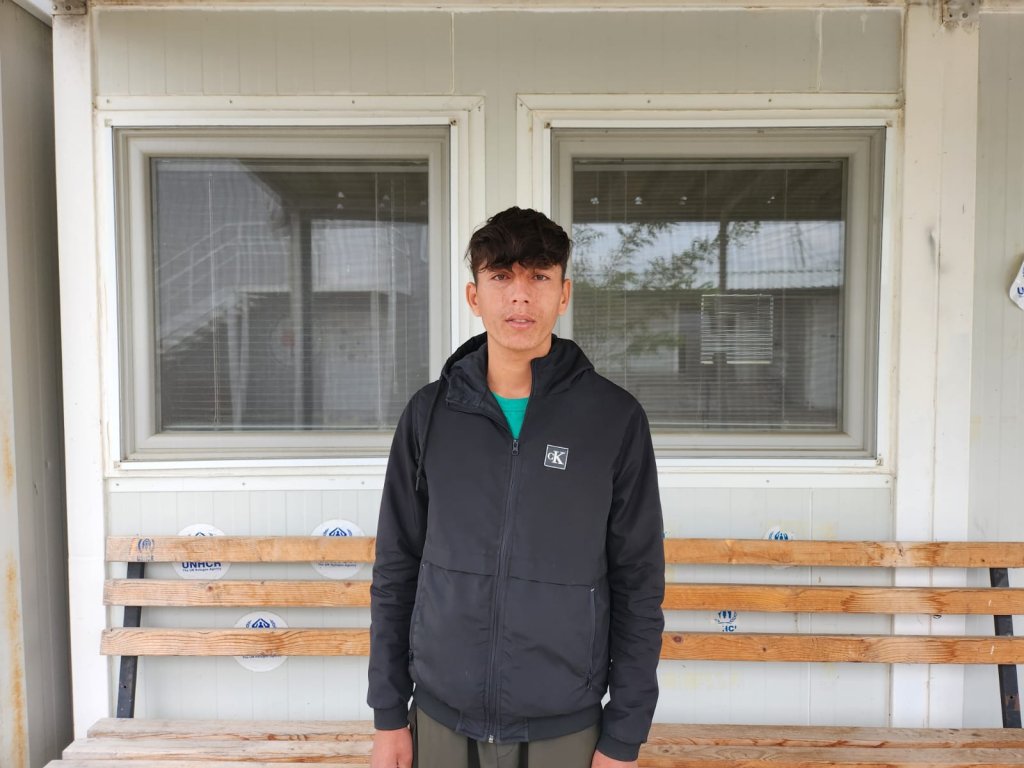
The 16-year-old points to a white van passing by on the road behind him at that very moment. "It was in one of those vehicles. The police use them to put almost 10 people inside. It happened three times."
Read AlsoOver 120,000 migrant pushbacks recorded at EU borders in 2024, say NGOs
Why wasn't he pushed back the fourth time? It's hard to say. Some migrants believe it depends on the number of places available in the transit center, or the capacity for transfers to Skopje. Others suggest purely arbitrary decisions. In any case, "this situation can be described as a pushback, especially if it happens behind our backs and we aren't notified," said Redjepi.
Pushed back eight times in a row
Although the presence of Frontex has improved matters, it appears that the practice of pushing people back to Greece continues. It has simply become less systematic and more discreet. It doesn't make the practice any less illegal: a sudden pushback is against the law because it prevents any examination of the individual's situation.
Azim is 16 years old. Yet his status as a minor has never been taken into account. In their report on the year 2024, MYLA's lawyers regretted that in North Macedonia there is "nothing for unaccompanied minors, no formal protection procedure or age assessment," and that in general "migrants do not have access to an effective remedy against informal expulsion."
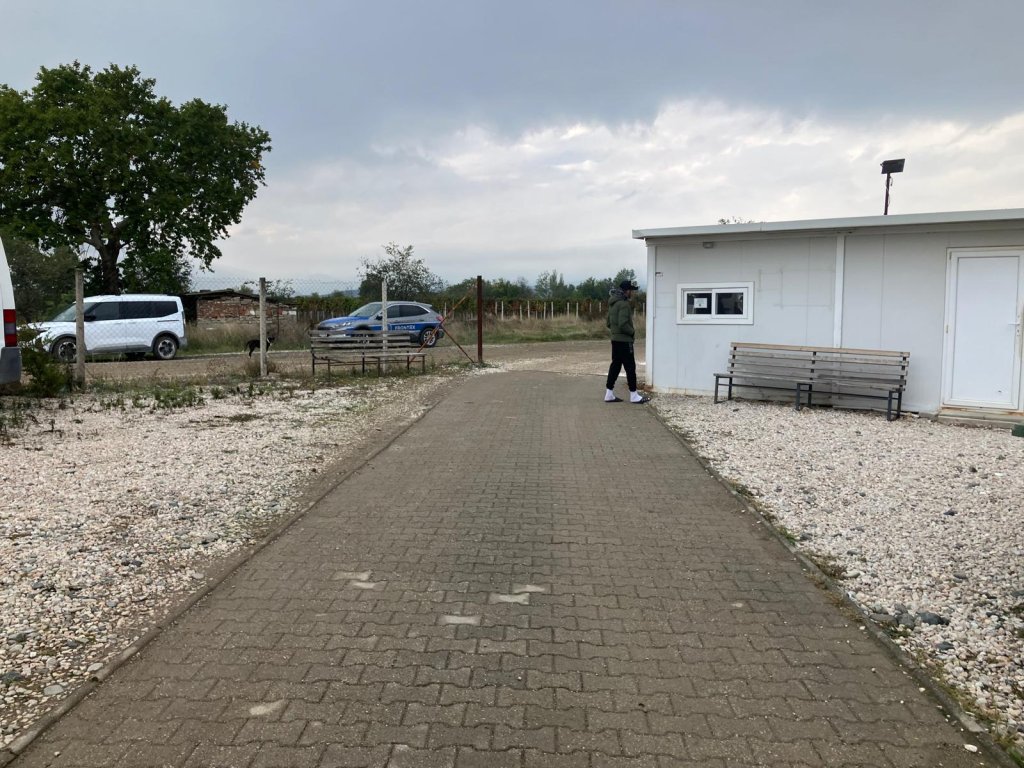
Rafiullah, a 21-year-old Afghan man InfoMigrants met at the asylum seeker center on the outskirts of Skopje, also remembered being pushed back eight times in a row. He wasn’t even sure about the exact number. "It was only during the 8th or 9th time that I was finally told: 'OK, you can stay here'."
Read AlsoNew EU regulations: deportations, return hubs, detention, bans and more
Yet Rafiullah claims he told authorities that he wanted to stay in North Macedonia upon his first interception: "I wanted to stay in North Macedonia. I knew that if I applied for asylum here in Gevgelija, after a month I would be transferred to Skopje. Once in Skopje, I could easily go to Serbia."
Now that he has been able to stay in the country and reach the capital, the young man is eager to reach Western Europe, where he has a cousin who works for a company in France. Smiling, his eyes sparkling, he asked: "Are the French more welcoming? Here in the Balkans, people are racist: they always look at me strangely like this [he frowned, his expression serious, then burst out laughing]. "I have trouble understanding why."
